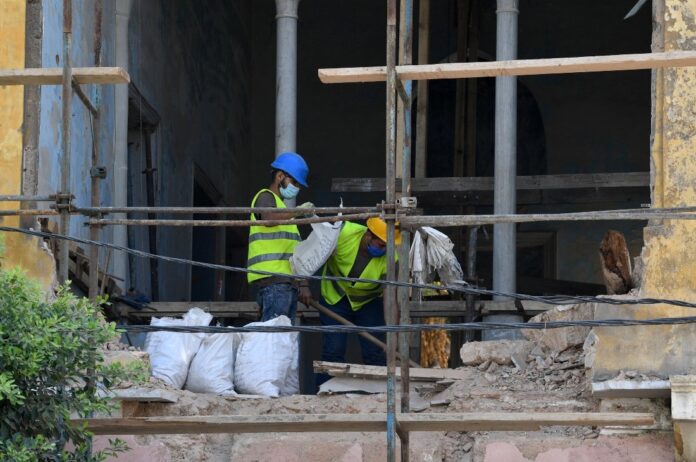LONDON: A collection of precious ancient glass objects that were shattered by the devastating Beirut port blast in August 2020 have been restored and put on display in London’s British Museum.
The Archaeological Museum of the American University of Beirut in the Lebanese capital boasted 74 glass vessels, 72 of which were destroyed by the shockwaves of the ammonium nitrate explosion.
But after months of recovery work, eight of the ancient artifacts have been recovered for viewing in Britain.
Dr. Duygu Camurcuoglu, a conservator at the museum in London, said the vessels had lost their ancient perfections due to the explosion, but the recovery team has ensured they are now structurally sound. “It is very, very hard to hide broken glass,” she said.
But the recovery allowed for more than just restoration for display. By scanning the new surfaces of the glass that were revealed by the damage from the explosion, researchers were able to analyze glass-blowing styles and strategies used in Lebanon in the first century BC.
It was a critical time for glasswork, opening up new methods and experimental styles that led to the mass production of glass products.
Camurcuoglu said analysis revealed manufacturing techniques that were “unique” to the area, while the glass also shed light on materials and coloring. She added that evidence of recycling was also found during the investigation.
Six of the eight vessels are from the Roman period; the other two are from the late Byzantine or early Islamic period.
Camurcuoglu said it is rare to discover full examples of early Roman glassworks in the Middle East.
Dr. Hartwig Fischer, the British Museum’s director, said the “Shattered Glass of Beirut” exhibition, which runs from Aug. 25 to Oct. 23, tells “a story of near destruction and recovery, of resilience and collaboration.”
The eight vessels are due to return to the AUB this year, where they will be added to a collection of 18 that were restored in Beirut.
The British Museum said: “By restoring these objects, the Archaeological Museum at AUB can tell the story of a local technological advance that had far-reaching consequences across the Roman Empire, and which helped shape the glass industry today.”


